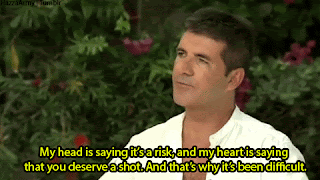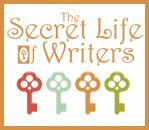While I'm on my mini hiatus, the wonderful Stephanie Diaz agreed to an interview for Secret Life! Which is great for many reasons, but especially because I cannot WAIT to read her debut, EXTRACTION. And if you haven't heard of it, then I'm thrilled to share this with you!
Read on to learn more about EXTRACTION's badass premise, Stephanie's publishing and submission process, and the writing secrets she wants to share with you all!
Stephanie recently graduated from San Diego State University. She wrote her debut novel, EXTRACTION, when she should've been making short films and listening to class lectures. Her book, the first in a YA sci-fi trilogy, hits shelves July 22, 2014. You can follow Stephanie on twitter: @StephanieEDiaz.
1.
Where did the idea for EXTRACTION come from? Is there something in particular
that inspired you to write this story?
The
idea really stemmed from a single question: What if the moon were poisonous?
That question popped into my head really of out of nowhere, when I was reading
a CP's manuscript and she mentioned the moon. I honestly don't know where the
whole poisonous thing came from. But after thinking more about the question,
the world of EXTRACTION came together and I fell in love with it.
2.
You were still in college when you wrote/sold EXTRACTION, which is
completely amazeballs. How did you and how do you still find time to write
while balancing other responsibilities?
Well,
I think I had a pretty unique college experience in that I was in a major (film
production) that didn't involve a huge amount of outside-of-class work except
for on production days, which didn't come around all that often. And since I
was living at home and didn't really, erm, do a whole lot of socializing during
the semesters (summer is a different story), I had a good amount of free time
to devote to writing. I also snuck writing in during lectures and such. Of
course, there were some days when finding time was a real struggle, and
sometimes I had to focus on school instead, even though it pained me. It
definitely made me realize how much I preferred writing over anything else.
Nowadays,
I actually have a lot more time to devote to writing, and I'm struggling with
the whole forcing-myself-to-actually-write thing. It's harder than I expected,
go figure.
3.
Without giving too much away, can you tell us which character in EXTRACTION is
the most like you and why?
The
main character, Clementine, is the most like me, for sure. She shares many of
my faults and fears, which made writing her quite therapeutic. But she's not
identical to me, of course. She's much braver and smarter than me, for one
thing.
4.
Tell us about the deal itself. How did everything go down? What was it like
having to keep that a secret for so long?
The
deal actually happened relatively quickly, at least compared to other stories
I've heard about. The book had been on submission for a month when I found out
there was interest from Macmillan, and about two weeks after that we had an
offer on the table. Once we accepted the offer, I only had to wait a week to
spill the beans. So it was a pretty fast process, but of course at the time the
days felt like ages. I survived because NaNoWriMo was happening at the same
time, and I was working on a new project I was excited about.
5.
From Goodreads, EXTRACTION sounds like it is packed with both action and
romance. What would you rather write: a fight scene or a kissing scene?
That's
tough! It honestly depends on my mood on any given day, but probably in general
I'd prefer to write a fight scene.
6.
What do you do when you get stuck? Do you wait it out or do you have strategies
for getting unstuck?
I
absolutely hate getting stuck, let me tell you. I always try to figure out why
I'm stuck or write through it or skip ahead, but I end up sort of in limbo for
anywhere from a couple days to a couple months (pretty much depending on
whether I'm on an actual deadline or not). And in the end, I usually realize I
knew all along what the problem was. It just takes me a long time to get up the
courage to fix it, since it often involves a bit of a rewrite. Since I've
become aware of this process, I've been trying to speed up the “acceptance”
part of it, but it's tough.
7.
I'm sure EXTRACTION required a ton of worldbuilding! What’s the coolest thing
you created in your world/found out about during research?
I'm
rather proud of some of the layout of the world I created, with its different
underground layers. It has some Death Star vibes. :-)
8.
What's the most surprising thing you've learned throughout your publishing
process?
Hmm.
Two things: 1. How slow the whole process feels. Yes, I knew the business was a
slow one going in, but it still doesn't quite hit you until you're in the midst
of it. (Of course, the awesome stuff totally outweighs the slow parts.) And 2.
how lovely and supportive bloggers and others have been so far, even though I'm
still many months out from my pub date. It's wonderful, but I didn't expect it!
9.
Do you have any writing secrets you'd like to share with our Secret Life
readers?
Thank you SO much, Stephanie, for sharing a little bit of EXTRACTION and your writing process with us!
Add EXTRACTION to your Goodreads to-read list here! (How could you not? This book sounds completely kickass.)
You can also preorder EXTRACTION here:
Amazon | B&N | IndieBound | Book Depository
*Book Depository = free shipping worldwide*



































